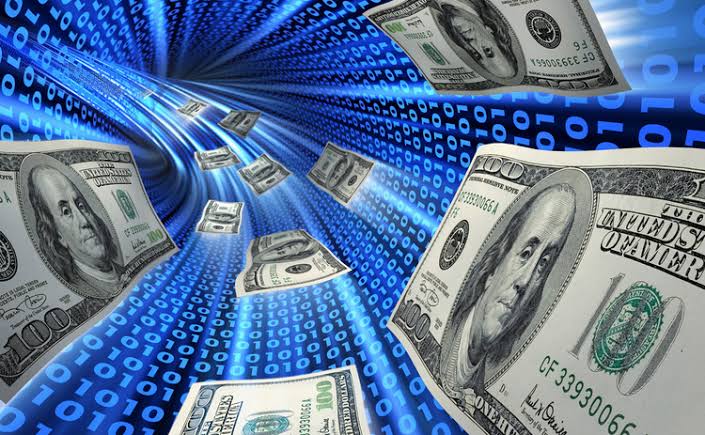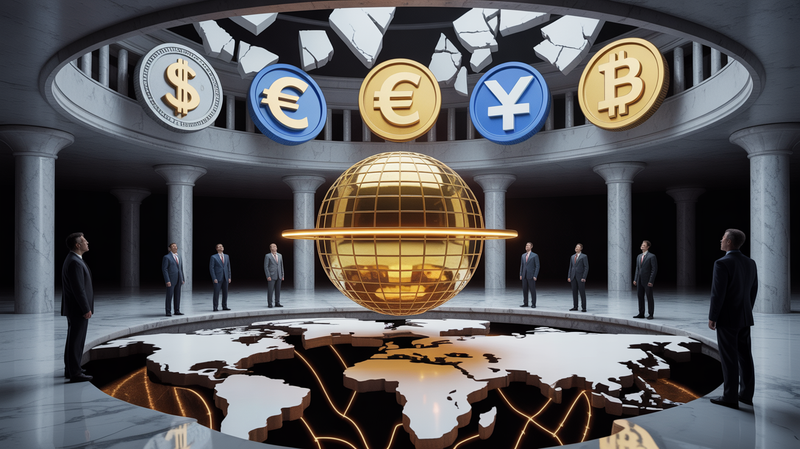Embracing the Digital Age: The Prospects and Pitfalls of a U.S. Digital Dollar
Introduction The notion of a U.S. digital dollar has been a subject of deliberation, taking center stage in the wake of President Joe Biden's March 2022 executive order. This order commissioned a report investigating the potential risks and benefits of a Central Bank Digital Currency (CBDC) for

Introduction
The notion of a U.S. digital dollar has been a subject of deliberation, taking center stage in the wake of President Joe Biden's March 2022 executive order. This order commissioned a report investigating the potential risks and benefits of a Central Bank Digital Currency (CBDC) for the U.S. Is America on the brink of adopting a digital version of its physical cash?
Understanding the Digital Dollar
A digital dollar, often referred to as a CBDC in Washington D.C., would essentially be a digital representation of the physical cash we carry. Similar in concept to cryptocurrencies like Bitcoin, the key difference lies in the fact that a digital dollar would be government-issued and managed by central banks.
Today, physical cash is rapidly being replaced by digital transactions via credit cards, debit cards, and various payment apps. However, unlike these traditional methods, a digital dollar would be a direct liability of the Federal Reserve and not any commercial bank or financial institution.
Working of a Digital Dollar
With a digital dollar, there would likely be a unified system for tracking payments and deposits, run by the Federal Reserve or another government entity. This system could potentially streamline transactions, removing the current one to three working days delay that occurs with multiple bank transactions.
The Federal Reserve is currently studying how a digital dollar could enhance consumer access to the financial system and facilitate faster and cheaper payments.
Potential Benefits of a Digital Dollar
Digital banking via the digital dollar could, in theory, offer no fees and no minimum balances, thus making banking accessible to all Americans. Additionally, transaction fees could be reduced or even eliminated, and payments from a federal account would clear instantly. This feature could potentially revolutionize the transactional experience by moving all digital transactions to a single ledger.
From a government perspective, a digital dollar could streamline monetary policy adjustments. Stimulus payments, for example, could be instantly deposited into digital dollar accounts, reducing fraud and mistakes.
Concerns Associated with a Digital Dollar
Despite its many potential benefits, the digital dollar is not without its critics. Privacy concerns and fears about giving too much power to the federal government are at the forefront of the debate. Critics worry that the government could monitor digital transactions and collect data on Americans' financial activities. There are also concerns that the government could potentially restrict access to funds or credit, implement negative interest rates on cash, automatically collect taxes, or eliminate physical cash entirely.
The Road Ahead
With the debate raging and the Federal Reserve yet to commit to creating a CBDC, the final form of a digital dollar system remains open to speculation. It is unlikely that Americans will form a consensus on the issue until they can understand the potential structure and impact of a U.S. CBDC.
Notably, the transition to a digital dollar would be an incredibly complex process that extends far beyond the U.S. borders. Ensuring a smooth transition would be crucial to avoid destabilizing the global financial system.
While the U.S. might eventually issue a digital dollar, it appears we are still years away from seeing this become a reality. Nonetheless, the conversation has started, marking an important step towards digital transformation. With the right blend of public-private collaboration, regulation, and infrastructural development, the dream of a digital dollar might yet come true.
Conclusion
In the midst of a digital age, the concept of a U.S. digital dollar is intriguing and potentially transformative. While it promises a slew of advantages, including faster transactions, increased accessibility, and efficient fiscal policy management, the concerns regarding privacy and governmental control cannot be overlooked. As we tread the path to potential digital currency adoption, these deliberations will shape the future of financial transactions in the U.S., marking a significant milestone in the evolution of money.




